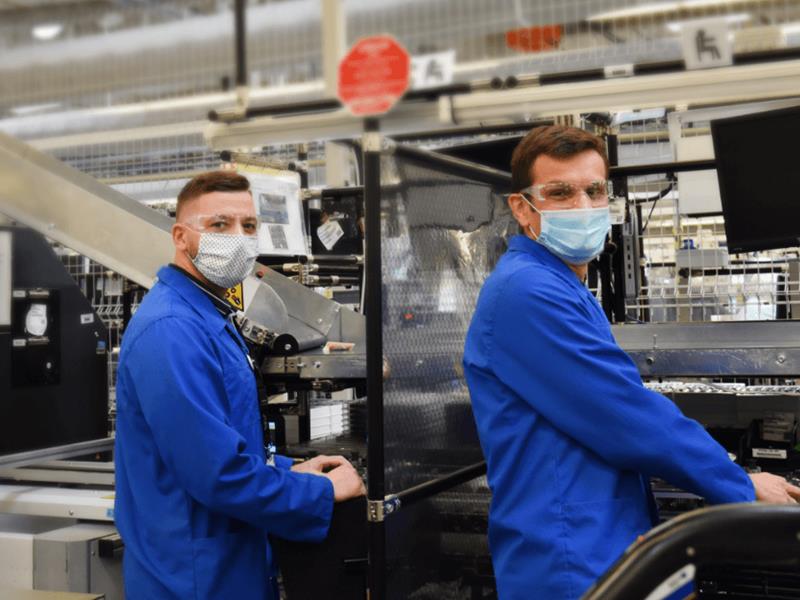The Tax Administration Service (SAT) reported that it renewed a tax agreement with the United States government on the maquiladora regime to avoid double taxation and ensure that maquilas contribute equitably in Mexico.
The Internal Revenue Service (IRS) of the United States and the SAT agreed to renew the Qualified Maquiladora Approach Agreement (QMA), which contains coordination provisions agreed between the competent authorities from the United States and Mexico in 2016.
«The SAT simplifies and facilitates the tax compliance of the maquiladora companies that operate in Mexico through a methodology that ensures their correct taxation in our country,» said the SAT in a statement.
The General Administration of Large Taxpayers (AGGC) of the SAT, and the Internal Revenue Service of the United States (IRS, for its acronym in English), have managed to renew the agreement related to the Qualified Approach for Maquiladoras, to which important characteristics were added that will allow the issuance of resolutions that guarantee that this sector contributes equitably in Mexico and, at the same time, there is no double taxation in the United States.
SAT
The QMA allows US taxpayers to avoid double taxation on contract manufacturing and assembly functions performed by their maquiladora if the Mexican taxpayer signs a unilateral advance pricing agreement (APA) with the General Administration of Large Goods. Taxpayers of the SAT in the terms negotiated in advance between the competent authorities.
The renewal agreement culminated in lengthy collaborations between the competent authorities of the United States and Mexico to address the inventory of unilateral APA requests from the SAT that involve maquiladoras.
«More than 700 US maquiladora taxpayers are expected to qualify for this agreement, thus strengthening ties between the IRS and SAT and providing certainty to hundreds of multinational groups,» the IRS said in a statement.
In 1999, the competent authorities of the United States and Mexico reached an agreement on transfer pricing and other aspects of the tax treatment of the maquiladoras of US multinational companies.
The 2016 QMA updated and expanded the 1999 agreement to reflect revisions to Mexico’s national transfer pricing rules, documentation requirements, and other fiscal characteristics of maquiladoras.
Other provisions
The renewal agreement maintains core elements of the 2016 QMA transfer pricing framework, which competent authorities have agreed to continue to produce arm’s length results.
This renewal agreement also has several important additional features. Given that there are situations in which the maquiladora has an outstanding accounts receivable balance that the competent authorities agree is inconsistent with the transfer pricing profile of the Mexican entity, a mechanism was included to address such situations.
In addition to providing certainty for fiscal years through 2019, the agreement also commits the competent authorities to begin work on another renewal of the QMA to cover fiscal year 2020.
Taxpayers can also check with the Advance Pricing and Mutual Agreements (APMA) program on whether the QMA is appropriate for their facts and circumstances or whether a bilateral APA between the United States and Mexico might be more appropriate.
The SAT will directly notify qualifying Mexican taxpayers. The notifications will include details on the steps a taxpayer must take with their pending unilateral APA applications.
![]()

